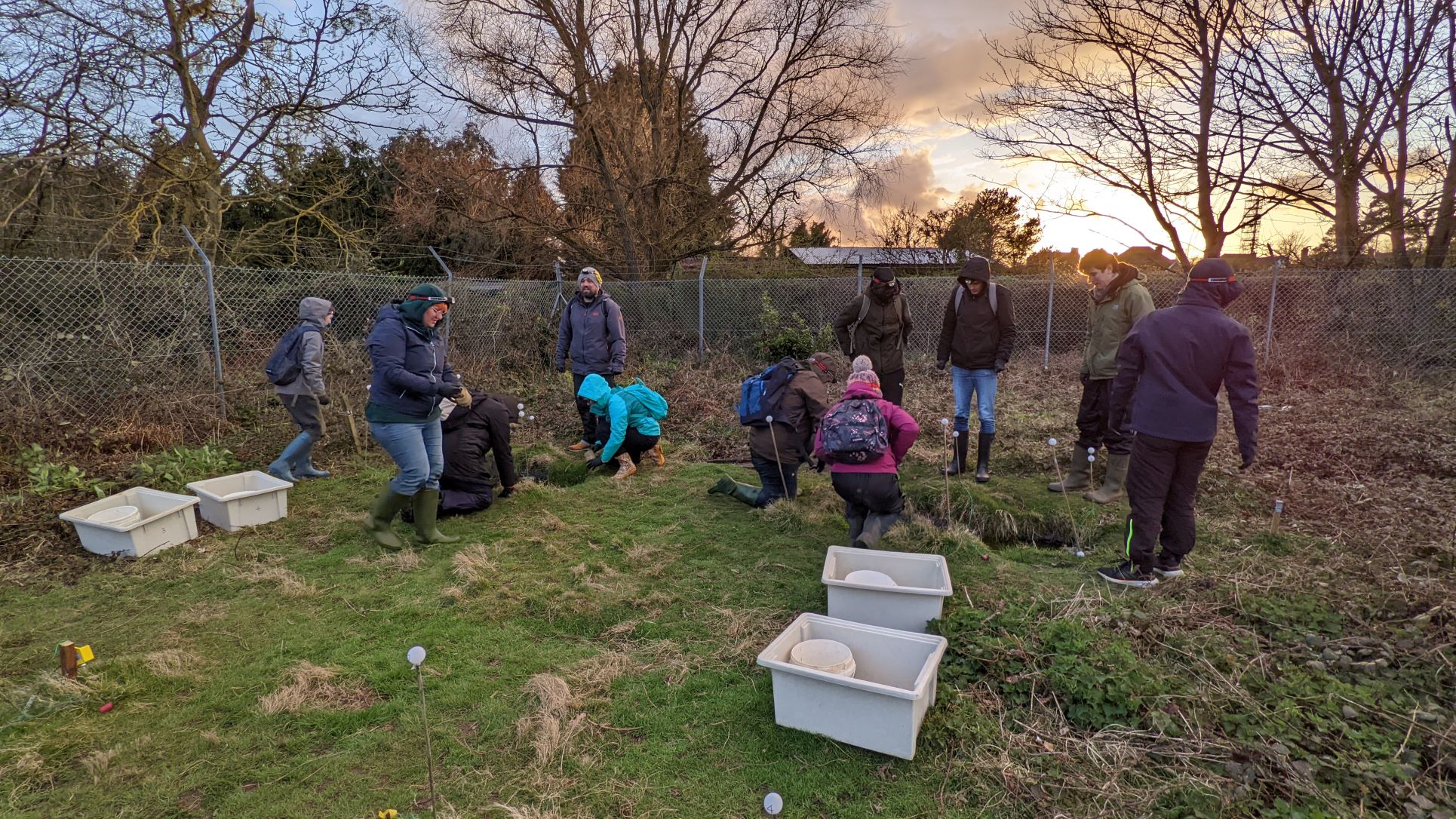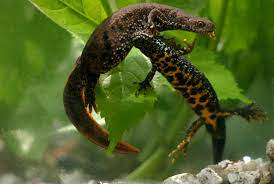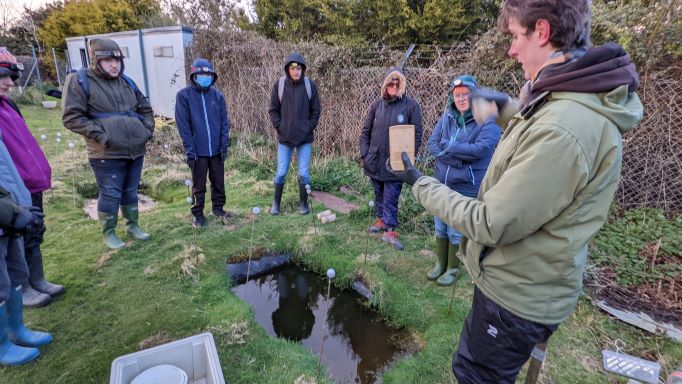..but that doesn’t stop fieldwork! Conservation Student Beccy Ives tells us about the Spring survey on campus.
Every Spring the Wildlife Conservation module students take to the campus to conduct fieldwork surveying birds, small mammals, and newts. The broad aim of this module is to provide students with practical field experience in biodiversity monitoring and assessment methods. Specific aims are to introduce students to a range of basic field techniques and develop their skills in the collection, analysis and presentation of field data. The module provides an essential practical element of the Wildlife Conservation programme.
This year, 60 students have undertaken these surveys and Stage 1 Wildlife Conservation Student Beccy Ives Student Beccy Ives was one of them. 
‘As part of the module ‘Surveying and Monitoring for Biodiversity’ the class have taken part in a field trips to collect data on the newt and mammal population on the University of Kent campus. This involved setting newt traps in the study site ponds, which is a protected area used as part of the great crested newt research programme run by Professor Richard Griffiths.
The traps were set on Wednesday evening and then were emptied in the Thursday morning.’
All great crested newts were weighed, measured, and were identified using their underbelly pattern (which is unique for each newt, much like our fingerprint!), and released.

This data is used not only for our assignments, but for the wider research project monitoring the population size of this species. Our small mammal traps were also set and emptied at the same times, and the small mammals were identified, weighed, and were released in the snow!
This field trip gave us first-hand experience into the practical side of conservation, as well as taught us the lesson that the research does not stop for anything, not even snow in April.’
Beccy is studying for a BSc (Hons) in Wildlife Conservation.

